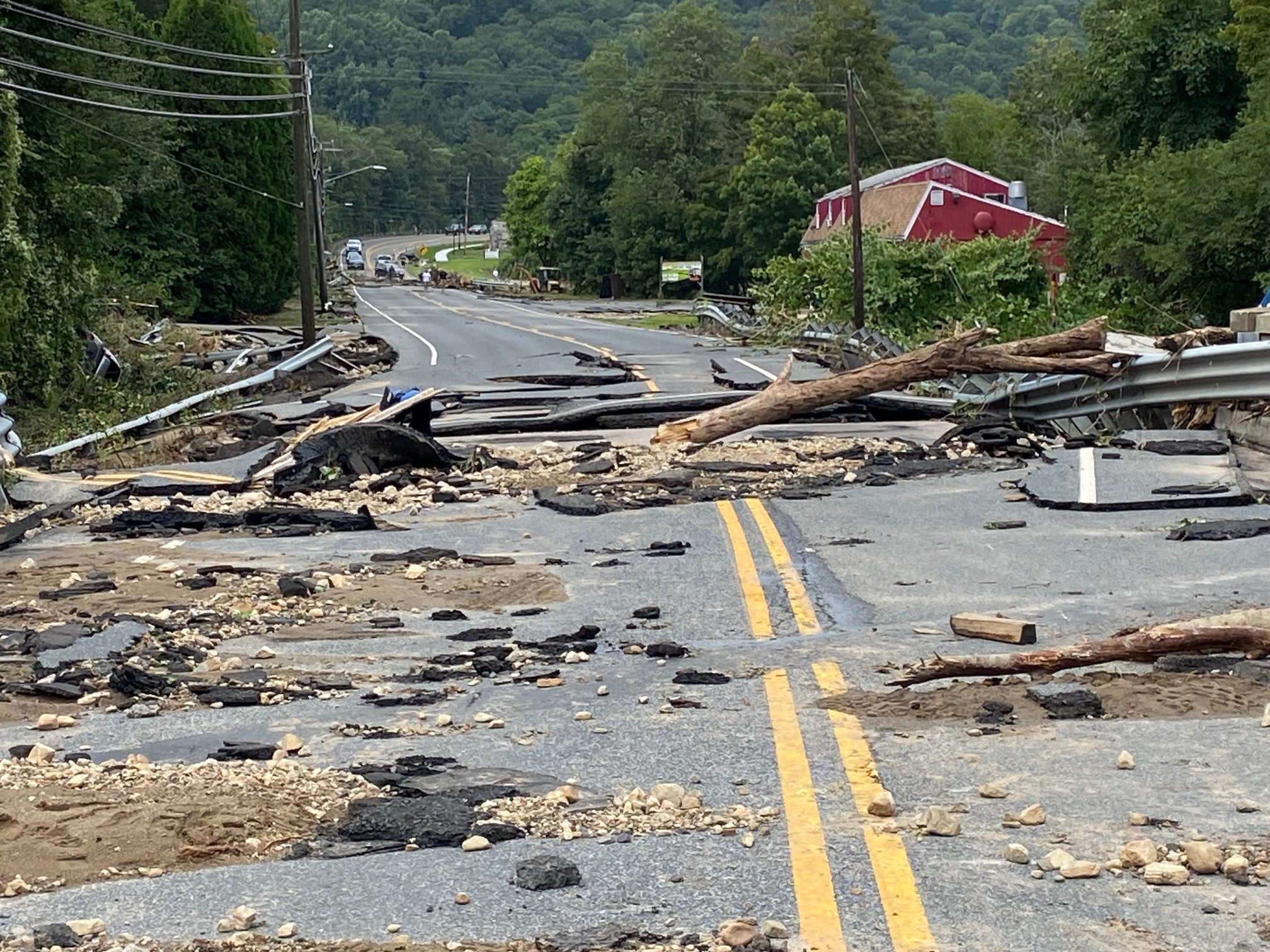
It's a known fact that the COVID-19 pandemic has shifted the way we work.
Big companies that at one time would never consider employees working from home and now, most of them have no choice to make it a part of their new normal.
This includes big insurance companies, places like Twitter, even news organizations. But what has that done for our state's ability to try to recruit new business here?
NBC Connecticut's Mike Hydeck spoke with Commissioner David Lehman from the state Department of Economic and Community Development about it.
Get top local stories in Connecticut delivered to you every morning. Sign up for NBC Connecticut's News Headlines newsletter.
Mike Hydeck: "So one of the big pushes in the last year or so, maybe a little more than that, was to get massive data centers to build up and relocate here or locate here in the beginning. That seems to kind of be on the backburner. We haven't heard a lot about that lately. Where does that stand?"
David Lehman: "Yeah, so the legislation was passed a year ago. And we are in active conversations with a handful of folks that are either planning data centers, or in the first stages of looking for tenants. So we're still optimistic that we're going to see data centers here. We've spoken with between 15 and 20 potential users and developers, so it's really a function of getting that first one or two done. And I think you'll see more on that later this summer, later this year. But we're still optimistic that that is part of a development strategy for the state that's going to be successful."
Mike Hydeck: "Would that be tax revenue in the millions, would you say over time? What kind of investment in the state could a place like that get and would they get tax breaks for it?"
Face the Facts
Face the Facts with NBC Connecticut goes beyond the headlines, asking newsmakers the tough questions, giving an in-depth analysis of the big stories.
David Lehman: "So a typical data center, depending on the size can be anywhere from $150 or $200 million in construction spend to upwards of over a half a billion dollars. So the tax revenue, certainly in the towns, is significant, in the millions of dollars of incremental grand list revenue. And as I mentioned, these are very sticky long-term capital investments. So with data centers, what we've seen in other states, like Virginia, for example, is a significant amount of construction jobs, given the size of the centers and the initial spend, and then significant revenue to the towns over time, in addition to better data infrastructure, which we think is just so important, especially in a remote work environment for states like Connecticut."
Mike Hydeck: "Another big project of concern is this state's goal to make our shoreline the Eastern hub in the United States for wind turbine construction, to try to get clean energy going here in New England. The cost has ballooned. Now, Eversource is sounding the alarm they may pull out of the deal with Orsted. Is the state working on trying to protect this major investment? And if so, how?"
David Lehman: "Absolutely. I mean, offshore wind and the transition to renewable energies, wind being one of them, solar being the other significant one, that's going to happen not just over the next five years, but over the next generation or two. So the investment in New London of the state pier, and for those that haven't seen it, I encourage them to do so, it is quite significant. And it is going to be the hub, one of the deep water hubs for the offshore wind industry. So the state continues to work with partners, you mentioned Eversource, Orsted, as well. And this is going to be a big industry when we think about 20 to 30 years in the state, as well as Massachusetts. All the way down to Virginia, states are making investments and Connecticut is going to be a significant part of that industry. So that remains a big focus of ours. In addition, I would say it's important that the state diversifies where it gets its energy from. So solar, wind hydrocarbons, obviously, the prices have been fluctuating meaningfully. And lately they've been going up. But we want to make sure that we have renewable energy. So it's also going to provide more price certainty, in addition to be cleaner in the future."
Mike Hydeck: "If Eversource does pull out, does that mean more of the tab is going to come to the taxpayer?"
David Lehman: "No, it does not."
Mike Hydeck: "So are we looking for another company to take their place? If they do pull out?"
David Lehman: "Yeah. Ultimately, my expectation is, if they do do that, they're going to look to sell their interest, and you will see a new partner at the table. So no, this will be a private market transaction. We don't think this is going to have an impact on the state, or that how the state views this economically."
Mike Hydeck: "So we have more and more major corporations, as I said at the beginning of the segment, with employees working from home, so that means there's much less need for a big office footprint. Is that making an impact on trying to recruit companies here and rents that could take place in places like Stamford, and so many people moving out of New York City into Connecticut, but it doesn't necessarily mean they're renting buildings, does it?"
David Lehman: "Yeah, so it depends. So we've seen over 40, or even 45 now, business expansions, some of which were businesses in state, some relocations, from places like New York, as you mentioned, and in places like the Stamford or Stamford area, you have seen significant activity as well as increasing rents depending on the building. So there's a difference still between the suburban office park, where there's not as much activity and not as much demand, versus a central business district and proximate to the train or very close to town locations. So we expect, as we are now through the pandemic phase of COVID, you're gonna see more decisions made by corporations in terms of their footprint and what's needed. It's been pretty muted, and I think you're gonna continue to see in places like Stamford and Hartford, some of the structural vacancy in the buildings. There was just too much space, even before the pandemic, arguably in some of these areas. We hope that you're gonna see continued conversions to residential. That plus offices and businesses are going to make, they're going to make decisions about hybrid and remote and what do they need? Do they still need 50,000 square feet, or is it now 30, and you're going to see it transition. This is going to take time though. It's going to take 10 to 20 years. But my expectation is 10 years from now, you're going to see more residential in our downtowns. And you're going to see a different type, a more flexible type of commercial space."



